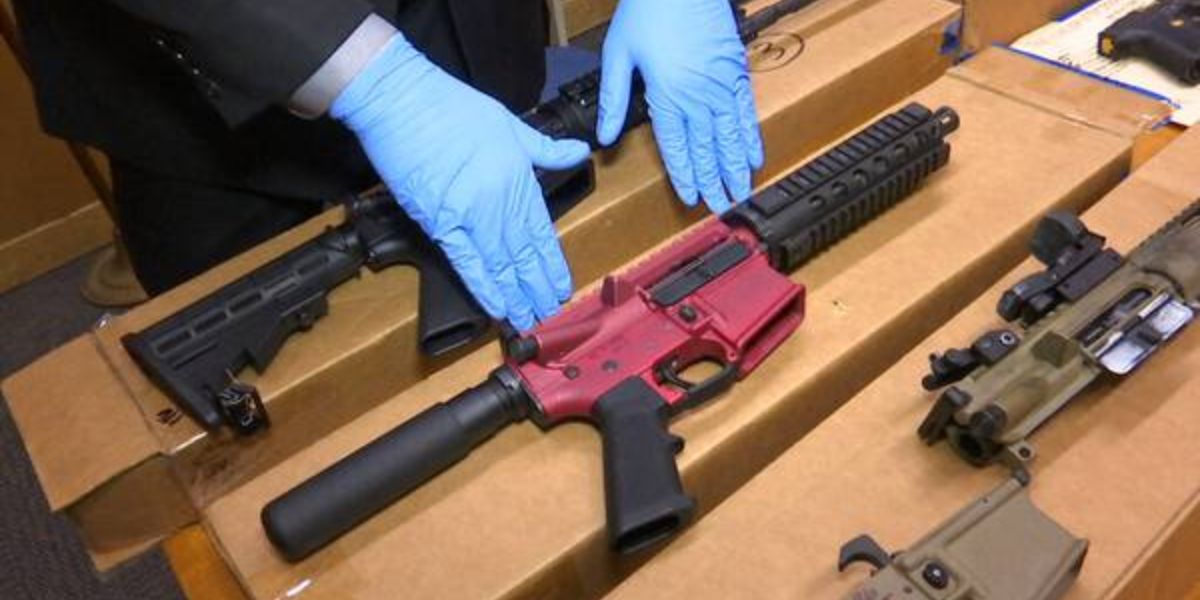A lower court’s decision that supported a gun manufacturer’s claim that the 2021 legislation banning firearm components without serial numbers was too wide and unconstitutionally vague was overturned by the Nevada Supreme Court on Thursday, upholding the state’s prohibition on ghost firearms.
Separately, the court denied a voter initiative that was scheduled to appear on the November ballot to proponents of abortion rights, a decision that they claim is significant because it establishes crucial legal guidelines pertaining to reproductive health care in general. This decision dealt a blow to anti-abortion activists.
Judge John Schlegelmilch of Lyon County District Court had earlier ruled against the gun regulation, ruling in favor of a challenge brought by Nevada-based gun maker Polymer80 Inc., which claimed the statute was too broad.
Polymer80 contended that the definitions of terminology like “blank,” “casting,” and “machined body” were lacking, and that the definition of “unfinished frame or receiver” did not clarify what constitutes a “finished” frame or receiver.
The Supreme Court unanimously upheld the statute, ruling that the wording authorized by lawmakers and signed by then-Gov. Steve Sisolak was “readily” understandable via common usage and understanding.
“The statutes here only regulate conduct involving an object that is intended to ultimately become a firearm,” Chief Justice Lydia Stiglich stated in the decision. “They prohibit acts involving such not-yet-complete firearms that have not been imprinted with a serial number.”
The court stated that Polymer80’s legal counsel had written letters to the U.S. Bureau of Alcohol, Tobacco and Firearms referencing its own goods with the terms “blank,” “casting,” and “machined,” demonstrating that these terms are widely recognized.
Stiglich went on to say that the terms were not unclear because they were “generic and broad.”
Read Also: Rep. Kevin Boyle Faces Expulsion Threat as Pa. House Democrat Presents Resolution
The high court rejected a Carson City judge’s finding in the other decision on Thursday, stating that the initiative’s language was deceptive and that it did not adhere to the requirement that it cover a single issue by incorporating abortion rights under the purview of reproductive health care.
“The medical procedures considered in the initiative petition concern reproduction. To assert that they could not all be addressed together because they are separate procedures is improper,” the Supreme Court stated. “Each medical procedure relates to human reproduction and they are germane to each other and the initiative’s single subject of establishing a right to reproductive freedom.”
Despite having previously refocused on a second, more focused proposal that aims to modify the state constitution and is expected to appear on the ballot in November after a judge determined that it satisfies legal requirements, proponents of abortion rights applauded the decision.
A lawyer for the Coalition for Parents and Children, a group opposing the ballot issue, expressed displeasure.
Harmon stated that her organization plans to submit the more than 160,000 signatures it has collected for the new ballot item for validation that month, much over the 102,000 needed by June 26.
The proposal would codify in the constitution the safeguards provided by a 1990 legislation that ensure access to abortion up until 24 weeks of pregnancy, or longer if necessary to preserve the unborn child’s health.
To amend the constitution, votes in 2024 and 2026 would have to be obtained.












Leave a Reply